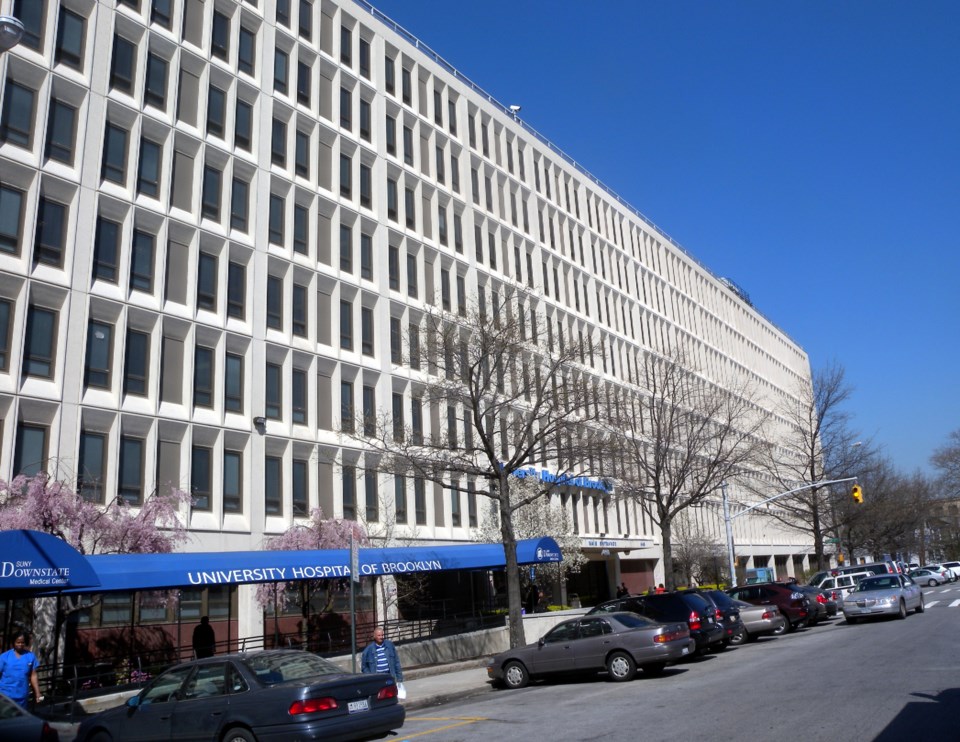With over 200,000 asylum seekers arriving in New York City since October 2022, doctors and health advocates are facing mounting challenges in treating their physical and mental health needs.
At a recent online conference hosted by the Department of Emergency Medicine at SUNY Downstate Health Sciences University, doctors talked about the small window physicians have when treating patients in the emergency room.
Christina Bloem, a clinical assistant professor of Emergency Medicine at SUNY Downstate, said that when a refugee or asylum seeker patient comes into the ER, “it might be the first and only point of contact” for patients to receive services and referrals that the city has to offer.
Besides treating physical injuries and illnesses like infectious diseases, patients might also have food and housing insecurity, anxiety, depression, post traumatic stress disorder and a risk of suicide, due to their personal history in their country of origin or from what they experienced during their treacherous journey to the United States.
“We have really brief interactions with our patients, and it’s a unique opportunity, but [in] a stressed and difficult environment to actually provide all of the resources they need,” Bloem said.
To better understand the state of an asylum seeker or refugee, physicians should start by looking at the county of origin, the advocates said.
“When you’re immigrants in the city, if you’re from Latin America, the Caribbean or Africa, you are from a marginalized and underserved and discriminated community,” said Humberto Brown, the director of Health Disparities Initiatives at SUNY Downstate.
Then you suffer trauma during your travel to the U.S. and again at the border. You come into New York City and can suffer from discrimination even further, he said. In order to treat refugees and asylum seekers, understanding the patient’s culture is key, according to Brown.
“Culture can be used to discriminate and stigmatize,” so a physician who understands the patient’s culture can provide better care, he said.
That said, just getting immigrants to trust the U.S. healthcare system and into a room with a physician poses a challenge, the advocates agreed.
Camilla Figuero-Restrepo, the lead senior program coordinator at the Arthur Ashe Institute for Urban Health, said many immigrants do not seek health care for fear of getting deported.
She said to think about what happens when a patient enters a doctor’s office, ER or health institution. You are asked many questions, including where you live, your phone number and how many people you live with.
The asylum seeker may think they’re in the right place to get the care they need, but can become fearful after being asked so many questions because they live in illegal housing, or in a household with other undocumented immigrants. This leads to the fear that you may be flagged, reported and deported.
Other blocks include limited transportation options, finances and insurance. There’s also a lack of racial and cultural representation and language barriers, she said.
A survey the nonprofit conducted in 2022 with about 300 people found that about 24% of respondents often or always have difficulty understanding information about their health, while about 22% did not feel confident using the internet to make health decisions. About 52% of the respondents sometimes or often have childcare problems that make it difficult to access healthcare and about 49% lack reliable transportation.
Hawthorne Smith, a clinical associate professor in the Department of Psychiatry at NYU Gross man School of Medicine and the director of the Bellevue Surivors of Torture Program, said many immigrants are also triggered by seeing police or guards at hospitals.
Many people are afraid of uniformed personnel because they were traumatized by the police or military back home, Smith said. Many human rights abuses are perpetrated by civic institutions, police barracks, military barracks and hospitals.
“We have had people come in and turn right around,” after seeing police or guards at the hospital, he said.
The advocates said it was important to build trust in immigrant communities.
Figuero-Restrepo said using community-based organizations (CBOs) to reach out to small business owners, like barber shops and beauty salons, churches and other religious organizations to give out healthcare information, is key.
In addition, the labor shortage in the healthcare sector is a detriment for refugees and asylum seekers getting adequate care, according to Sabrina Muhanna, a co-director of the Physicians for Human Rights Asylum Clinic at SUNY Downstate. The clinic, which provides forensic examinations of asylum seekers, gets about 10-20 case referrals a month, but they only have the capacity to treat one to two patients, she said.
“We operate on a first come first serve basis, so demand exceeds our capacity,” Muhanna said, citing the need for additional physician volunteers.
Everyone has the right to equitable, quality health care as this is a human right, said Teresa Smith, an emergency medicine physician and the interim chair of the Department of Emergency Medicine at SUNY Downstate.
In order to provide the best care, it is a physician's job to provide services that fit not only an asylum seeker's medical needs, but to also address their health-related social needs, including those caused by their immigration status and their access to care, said Smith, who organized the conference.
"We are not just treating the patient in front of us, but we are treating the community they came from," she said.




